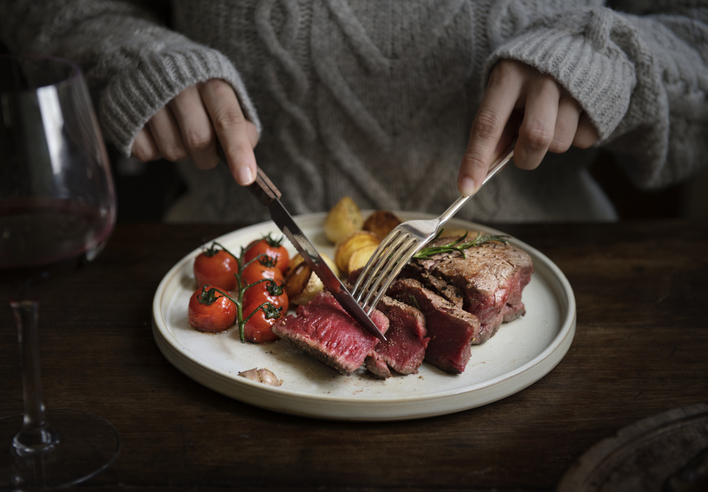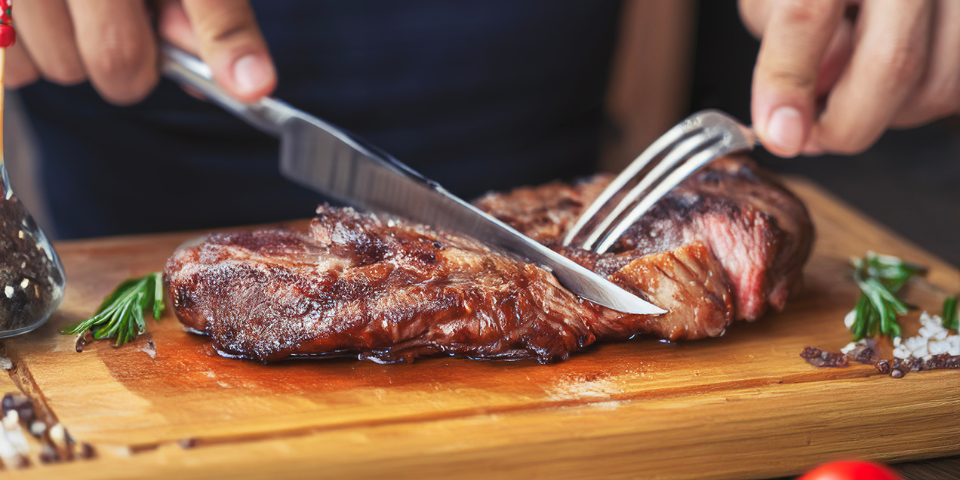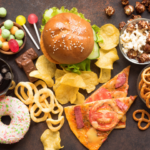Protein is one of the main building blocks of the human body and is important for muscle building and recovery. If you’re interested in building muscle or losing fat, you probably know how important it is to increase your daily intake of this macronutrient. But is there an upper limit to how much you should use? How much protein is considered too much?
There is a goal post, but it’s hard to get over. Here’s what the experts are saying.
Are high protein diets safe?
First of all, eating too much protein can be very difficult for your health. according to a study published in the journal American Journal of Clinical Nutritionconsumed by the average American less than half One of the “upper limits” for protein intake is 35 percent of daily calories.
However, studies have shown that people who are active beyond this upper limit may experience no adverse effects. in a 2016 survey Published in Journal of Nutrition and Metabolism14 healthy, resistance-trained men alternated between a normal diet and a “high-protein diet” (more than 3 grams per kilogram of body weight per day) for several months. To put this into perspective, a 154-pound person should eat 210 grams of protein per day, which is roughly the equivalent of two pounds of chicken.
After a year of follow-up, the researchers found “no harm to blood lipid levels, liver and kidney function,” the most negative response to the protein.
In addition, there are research This suggests that current recommendations may be too low for certain populations, such as adults over 65, pregnant or breastfeeding women, and healthy children over 3 years of age. So while the scientific debate about how much protein is too much continues, it’s important to acknowledge the emerging literature that supports the safety and efficacy of high-protein diets.
3 effects associated with a high-protein diet

Studies have looked at the risks of consuming too much protein, but the Institute of Medicine’s Dietary Reference Manual states that “insufficient data” underlines the need for controlled clinical studies to establish a causal link between protein and health complications.
1. Upset stomach/discomfort
Some people experience gastrointestinal problems from protein supplements. This may be due to the lactose content in some protein shakes that contain whey protein concentrate. In these cases, using whey protein or plant-based protein is less likely to cause these problems because it contains less or no lactose than whey protein concentrate.
Potential GI problems can be caused by whole foods. “If you’re eating too much animal protein and not enough fiber-rich complex carbohydrates, you’re more likely to experience mild constipation,” explains Quyen Vu, MS, RDN.
2. Kidney problems
Some studies reported a relationship between a high-protein diet and kidney function. However, it is “extremely rare” for exercisers to develop kidney or other metabolic disorders from consuming too much protein. Glenn Gaesser, PhD, FACSMProfessor of Exercise Physiology at Arizona State University.
3. Heart problems
Some studies suggest that Eating too much protein can have a negative effect on the cardiovascular system.
“Several population-based cohort studies have shown a higher risk of premature death associated with high-protein diets, such as the classic low-carbohydrate diet, which contains significantly more protein than the typical American diet,” Gaesser said.
However, he continued, “High protein intake may not be the problem, but other dietary characteristics, such as foods high in animal fat and low in fiber.”
Can eating too much protein affect weight loss?

In a word, yes. Protein is a source of calories. If your goal is to lose weight, it’s important to create a calorie deficit, which is burning more calories than you’re taking in. If you’re eating a lot of protein, it will narrow (or eliminate) your calories. deficiency, which adversely affects weight loss.
“Protein that is not used for normal growth and maintenance of the body can be used for energy and converted to fat if it is lacking from other sources,” he said. Mindy Haar, Ph.D., RDN, CDN, FANDRegistered Dietitian and Associate Dean, School of Health Professions, New York Institute of Technology. “If eating too much protein causes you to consume more calories than you need, you’ll gain weight.”
However, protein remains an integral part of most weight loss efforts. A meta-analysis 24 studies have found that a calorie-restricted, high-protein diet produces more positive changes in overall body composition than a standard protein diet. This is because protein promotes fullness and helps maintain muscle.
How do you know if you’re eating too much protein?
Your first thought might be a stomach ache or some other minor gastrointestinal ailment. Even if you’re iron-clad, know that you can eat more protein than you can efficiently process.
“Your body can only use a certain amount of protein in one sitting — about 30 grams,” he says. Lisa Moskowitz, RD, CDNCEO of New York Nutrition Group. “That’s the equivalent of four ounces of cooked chicken breast or cooked fish, one cup of Greek yogurt, or two cups of black beans.”
It is also important to limit your protein intake throughout the day as the body does not store excess protein.
“I see a lot in training where athletes try to supplement their protein intake with one or two meals,” he says. Maddie Osburn, RDN, LDRegistered Dietitian in Wichita, Kansas. “If an athlete consumes too much protein in one or two meals, they will not respond optimally to muscle growth, and it will be excreted or stored as fat. In addition, eating too much protein will provide essential carbohydrates, fats, and fiber for recovery and performance.” can replace other important nutrients such as





